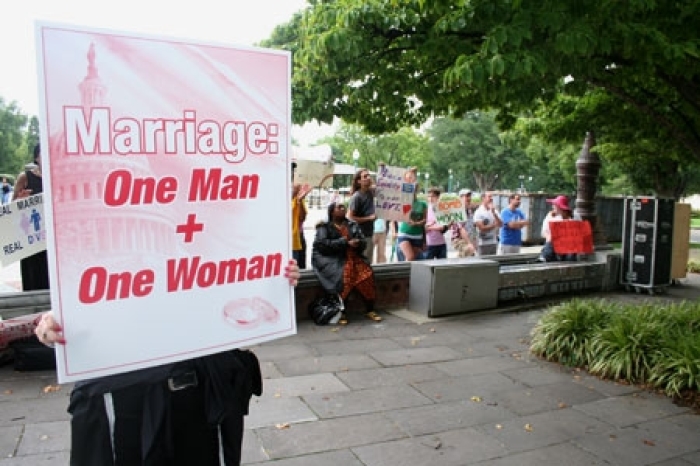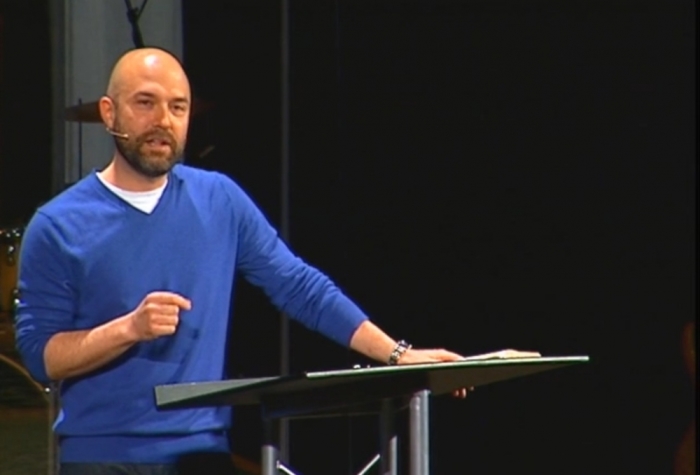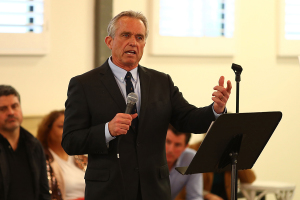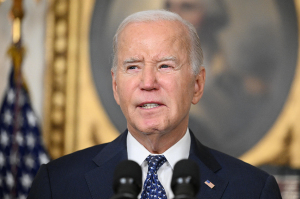Leaving Christianity: What are the statistical trends?
Factors for leaving: youth, judgmentalism, LGBT issues, politics

Americans often moved toward the decision to leave Christianity when they were still fairly young, often in teenage years, according to researchers.
In January, LifeWay Research released a study that found that 66 percent of young adults who attended a Protestant church regularly for at least a year as a teenager quit going for at least a year between the ages of 18 and 22.
The report drew from data collected from a survey done Sept. 15–Oct. 13 of last year of 2,002 respondents who attended Protestant churches, with a sampling error of plus or minus 2.4 percentage points.
The most common reasons were “moving to college” (34 percent), “church members seeming judgmental or hypocritical” (32 percent), “no longer feeling connected to people in their church” (29 percent), disagreement with their “church’s stance on political or social issues” (25 percent), and employment obligations (24 percent).
Scott McConnell, executive director of LifeWay Research found that “change of belief” was actually not a major reason among respondents for the recent study.
Nevertheless, McConnell told CP, many viewed churchgoers as “judgmental” and “hypocritical,” with about 10-15 percent of respondents specifically citing either “a change of faith or maybe never having faith.”
The view that churches were too judgmental was key for people who are “in a phase of life when they're making a lot of decisions on their own for the first time,” according to McConnell, who added that “the last thing they want is people looking down their nose at the decisions that they made.”
The LifeWay Research study allowed respondents to choose among 55 reasons spanning various issues, with many respondents selecting multiple reasons when explaining their faith choices.
The listed reasons under change of belief included 10 percent saying they “stopped believing in God,” 10 percent saying they “became angry at God for personal reasons,” and 15 percent saying that they disagreed “with the church’s teachings about God.”
For those who left, McConnell explained to CP that “church had not become an integral part of their faith and their life.”
“When we asked those who stayed why they stayed, one of the top responses is they wanted the church to be their guidance in life. So it had become integral to them," he said, adding that “when it is truly your choice, it is shining a light on a decision that had already been made."
Jones of PRRI also found in his research that although “there has been some attrition across all age groups,” the decline in Christian affiliation among young whites “is striking.”
According to Jones, research shows that the majority of young people who leave the religion they were raised with occurs during teenage years. “It’s not a college effect,” he said.
“The reasons people cite for leaving a religion in which they were raised are complex, ranging from simply not seeing the church as relevant to their lives to more specific reasons,” said Jones.
“PRRI found that nearly one-third of young people who were raised religious but left said that negative teachings about or negative treatment of gay and lesbian people were an important reason why they left.”
Religion researcher Burge attributed the decline to a host of likely factors, including rising secularization amid growing prosperity, a “social desirability bias” in which the stigma of not being religious is far weaker than past generations, and even possibly modern technology.
“It could be technology. The rise of the internet has let atheists know that they are not alone. People in small towns could go their whole lives and not find another atheist,” speculated Burge.
“Now, with social media, they are having meetups and support groups form. It's become easier to be who you really are and express how you really believe.”
Politics was also a likely factor, according to Burge, who felt that “a lot of politically liberal Christians didn't want to associate themselves with a religious group that they see as increasingly close-minded and conservative.”
The Pew Research Center directed CP to a 2018 report in which they surveyed a representative sample of approximately 1,300 nones, broken down into the sub-categories of atheist, agnostic and “nothing in particular.”
According to Pew’s report, 60 percent of nones reported disagreement with religious teachings as their reason for being unaffiliated, followed by 49 percent opposing their church’s positions on social or political views.
“Those who identify as atheist, agnostic or ‘nothing in particular’ tend to give different reasons for their lack of affiliation, showing that ‘nones’ are far from a monolithic group,” wrote Becka Alper in the 2018 Pew report.
“For example, about nine-in-ten self-described atheists (89%) say their lack of belief in God is a very important reason for their religious identity, compared with 37% of agnostics and 21% of those in the ‘nothing in particular’ category. Atheists also are more likely than other ‘nones’ to say religion is simply ‘irrelevant’ to them (63% of atheists vs. 40% of agnostics and 26% of adults with no particular religion).”
There is also some research suggesting that people shy away from churches when they're perceived to be more politically active. A study from 2018 published by Political Research Quarterly found the rate of religiously unaffiliated people increased in states where the Christian Right was active.
The study used data from the Cooperative Congressional Election Study as well as expert reports and counts of interest groups, centered on the time period of 2000-2010.
The researchers noted that, for example, during debates over state-level gay marriage legalization, religious disaffiliation increased in the states that enacted bans.
The study compared the decline to Religious Left activism in the 1960s, with many mainline Protestant churches losing members over outspoken antiwar and civil rights support.
"Clergy involvement in the civil rights and antiwar movements precipitated losses in lay membership. For instance, one survey found that nearly two-thirds (63%) of church leaders who participated in acts of antiwar civil disobedience reported that their churches had subsequently lost members," explained the study.
McConnell reported that disagreements with a church’s stance on political and social issues were being cited more in recent times as a reason for leaving than years before.
“I would attribute that a lot to how those topics are discussed at the church and too many folks are verbalizing those views in a way that would make a young person think that those are primary rather than saying 'our walk with Jesus Christ is primary,'” McConnell said.
“I think the young people are getting an impression that in some churches politics is as important or more important than faith itself.”
Joshua Harris not a typical case

While Joshua Harris and others have made headlines for their movement from deeply involved Christians to non-Christian, experts believe that this is not commonplace for ex-Christians.
McConnell explained to CP that “in the majority of cases” of people no longer identifying as Christian, it usually involves individuals who were not that active in their faith.
“When people used to indicate their religious preference as Christian, they may even have had Christian practices and today they do not and they consider themselves secular or nonreligious, in many cases they were not that involved in church,” he said.
"So many of these high-profile cases are people very involved in the church, they were leaders in the church, even pastors in the church. And so, in those ways, they would be the exception."
Researcher Burge also felt that Harris was not “the norm when it comes to people leaving religion,” explaining that people leaving Christianity often “just slowly slide away over time.”
“Very few people go from being hardcore biblical literalists who go to church twice a week to die-hard atheists, let alone in the span of just a few weeks or months,” noted Burge.
“Most people gradually drift to and from religion throughout the course of their lives. I think that many people who say that they are newly religious unaffiliated in one survey, would have responded to the prior survey two years earlier by saying that they were Catholic but only went to church one to two times a year.”




























